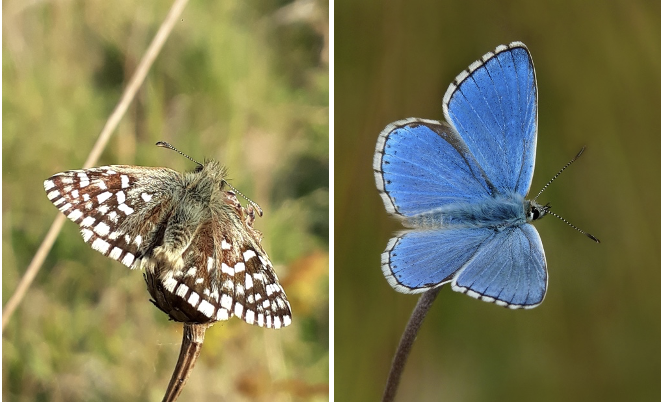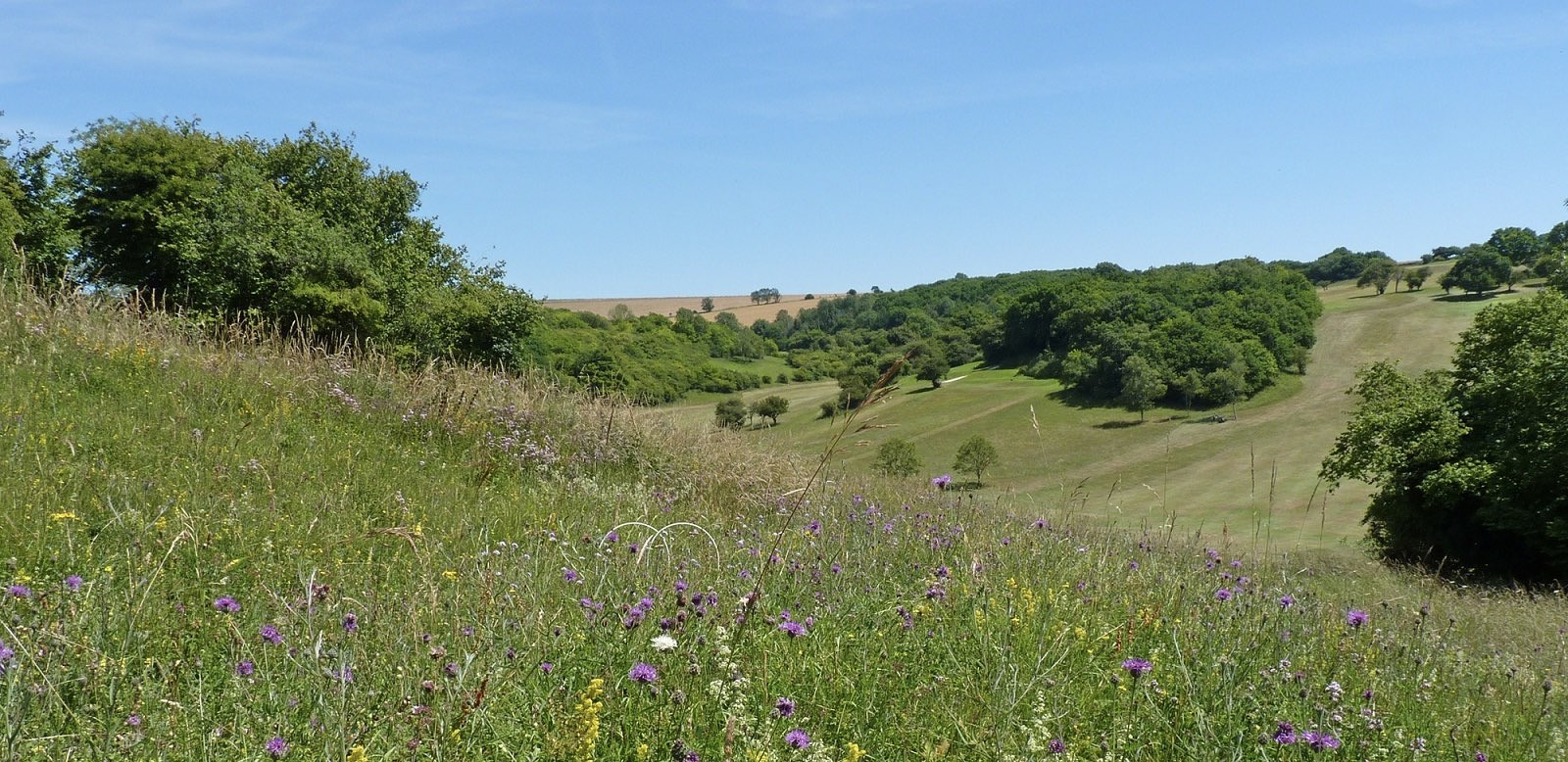Pyecombe Golf Club in East Sussex, which is set within the undulating landscape of the South Downs National Park, is one of the best courses in the UK for butterflies and chalk grassland flowers, new research has found.
Consultant ecologist Neil Hulme performed three detailed surveys of the course and found an impressive total of 34 species of butterfly, including rare species such as the Adonis Blue, Brown Hairstreak and Grizzled Skipper.
The nature success story comes after pioneering wildlife-friendly management of the course with the help of the South Downs National Park Authority, which shared the cost of special mowing equipment.
Ecologist Neil Hulme said: “Walking around this golf course is like walking through a nature reserve or one of the better Sites of Special Scientific Interest in Sussex. It’s a good job I’m not a golfer as I’d deliberately spend the entire round in the rough, which is packed with an amazing variety of stunning wildflowers such as Round-headed Rampion, Horseshoe Vetch, Wild Marjoram, Common Rock-rose and Devil’s-bit Scabious.”
The club, which is situated to the north of Brighton & Hove, has been using a “cut and collect” mower to manage the course. Traditionally, grassy areas are mown and the cuttings are left on the ground to decompose, enriching the soil which then encourages coarser grasses to dominate and outcompete wildflowers. With “cut and collect” the soil is not enriched with nutrients as the grass cuttings are collected.

Without the soil enrichment, the rare chalk grassland is maintained and a variety of wildflowers are able to grow and provide habitat for bees, butterflies and other insects. The National Park has also helped with the management of areas of scrub and woodland on the course, as well as conserving a flower-rich bank that’s now grazed by sheep.
Phillippa Morrison-Price, who is Lead Ranger for this area of the South Downs National Park, said: “It’s been a joy working with Pyecombe Golf Club, which cares so well for the wonderful mosaic of different habitat types found around this golf course. The areas of chalk grassland are particularly valuable for the plants and insects they support. The club should be very proud of what it has achieved here, demonstrating that sporting facilities and some of our most precious wildlife can happily exist side-by-side.”
Simon Wells, Head Greenkeeper at Pyecombe, said: “We have been working together on this for many years. To begin with, there was some hesitance from members and the relevant committees; particularly concerning ‘buy-in’ to some of the changes in course management strategy. For example, our strategy for rough grass areas, all the way up to the tree lines needed to be updated. Those concerns were allayed and we now benefit from circa 50 acres of managed wildflower meadows.
“Those meadows develop and improve year-on-year. As the environment changes, this supports new species of both Flora and Fauna. The club’s committee and management have been very supportive of the current course set up, that highlights the courses’ natural settings. At the very beginning of the process the designated rough areas were allowed to grow. They were thick and difficult to play from, resulting in some dissatisfaction from golfers.
“Within a couple of years of cut, collect and scarification, the roughs started to thin as the nutrient levels decreased, allowing space within the thinning swards for wildflower seeds to germinate. All the wildflowers are natural; no over-seeding has taken place. Some seeds will have laid dormant in the ground until scarification has disturbed the surface enough for them to germinate. Others will have been wind-blown.
“Over the years I have sought many experts’ opinions, advice and knowledge from their particular field to enable us to get to this point in time with the many habitats that exist at Pyecombe Golf Club. The roughs now can be truly stunning and the club members have taken a sense of ownership of them and understand how privileged we are to be custodians of all these rare and wonderful habitats. It’s great to see the fruits of our labour.”
Pyecombe Golf Club was established in 1894 and prides itself in managing the site to the highest environmental standards, winning the Sports Turf Research Institute’s National Environmental Golf Club of the Year award in 2016.
Neil added: “The efforts of Simon Wells and the grounds team have created a paradise for pollinators – it’s great to see the club doing its bit in the face of the biodiversity crisis we’re facing.”

